Iowa Democratic caucus: Hillary's fight to the finish
- Published
- comments
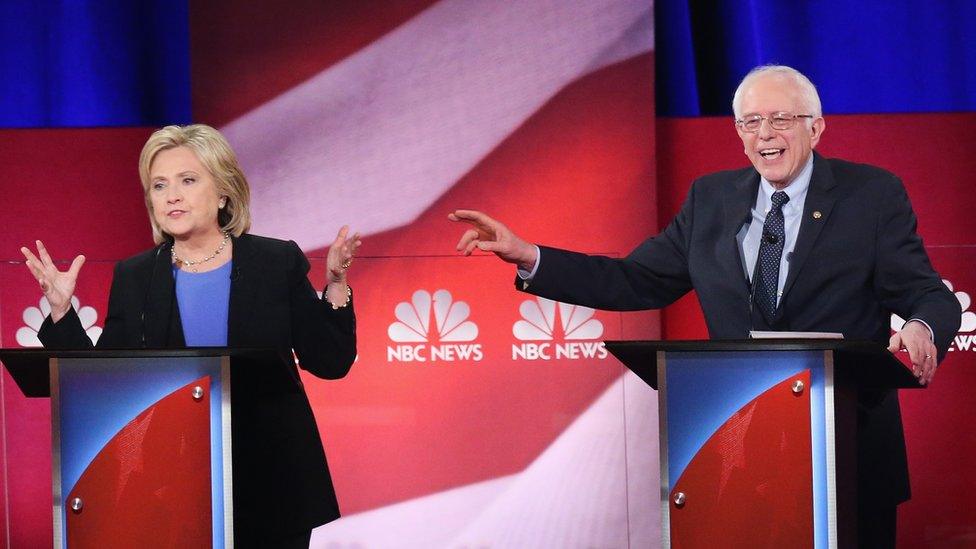
Hillary Clinton's quest for the Democratic presidential nomination in 2016 was supposed to be a coronation, not a conflagration.
Now, however, the former secretary of state finds herself in Iowa just days before the first-in-the nation caucuses, trying to extinguish an insurgent campaign by Vermont Senator Bernie Sanders that seems to be spreading like wildfire.
While Mrs Clinton has spent the past year building a campaign infrastructure that she hopes will carry her to success in Iowa and beyond, Mr Sanders has become a fundraising powerhouse, thanks to passionate grass-roots support.
The Clinton camp may have had a head start on organising Iowans to support her in Monday's caucuses, but the Sanders campaign is pouring its newfound resources into the state in hopes that a win here - and in New Hampshire next week - will vault him into a national lead and position him to prevail in a fight for the nomination that could drag on for months.
A tale of two rallies
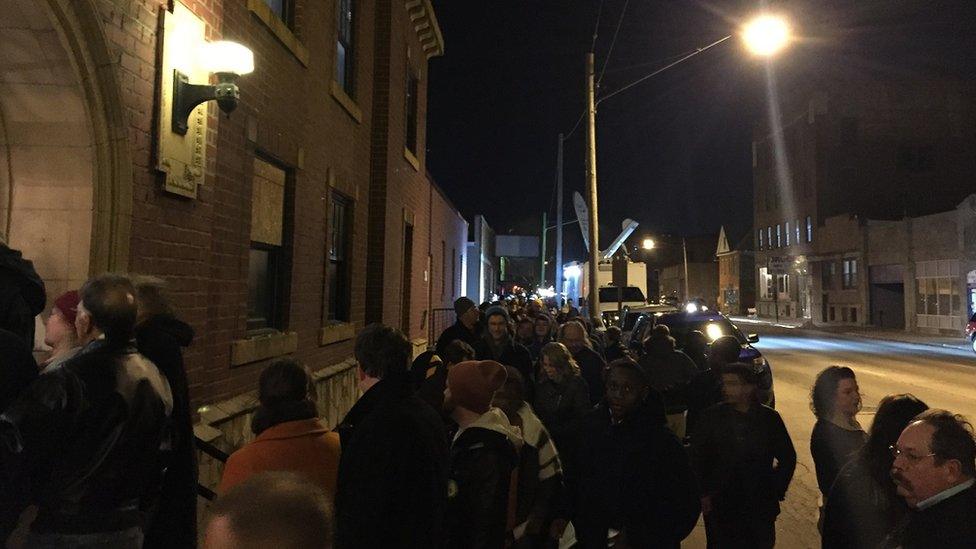
Outside the Clinton rally
The pitched battle between the two candidates was on full display on Friday night, as they held rallies mere blocks from each other in Davenport, Iowa.
Although they drew similarly sized crowds of about 1,000 people in this modest-sized city on the banks of the Mississippi River, it was a clear contrast in styles.
Outside an old-fashioned dance hall, Sanders loyalists lined the street, waving homemade signs, posing with a life-sized cutout of their candidate and cheering as passing cars honked their support.
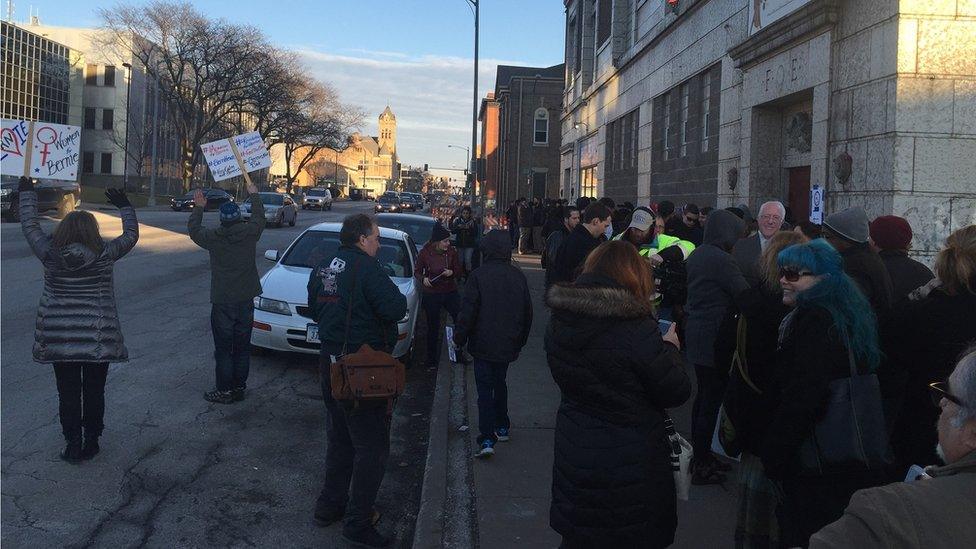
Outside a Sanders rally
"I'm so excited to change the world," said Selina Vickers, a social worker who drove 11 hours from Fayette County, West Virginia, to help with the get-out-the-vote effort. "I've never been inspired like this."
Mrs Clinton's backers - a relatively older crowd - were more restrained as they waited to enter their auditorium a few hours later. No car horns, no cheering - just a long line to get through a door guarded by Secret Service officers.
Inside the venues, the Sanders fans chatted and chanted, as John Lennon's Power to the People blasted over the loudspeakers. Mrs Clinton had a live country band, which closed with Lee Greenwood's God Bless the USA - a patriotic ballad that was a staple of Republican Ronald Reagan's presidential campaigns.
Inside a Hillary Clinton rally in Des Moines, Iowa.
"I'm proud to be an American, where at least I know I'm free ..." the cowboy-hat-adorned singer belted.
Mr Sanders was introduced by Cornel West, the fiery author and black rights activist. He shouted, clapped and practically pirouetted, telling audience that the Vermont senator was at the centre of a political movement, a "moral and spiritual transformation" in the nation.
"We're trying to remake and recast American democracy, and Bernie Sanders is the select one," he said.
A hoarse former President Bill Clinton was his wife's warm-up act.
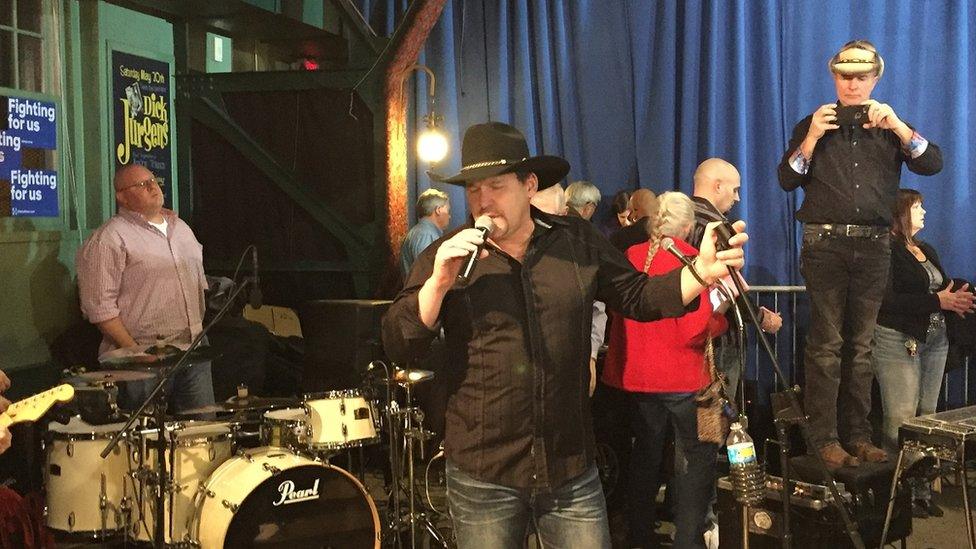
A live country band played at a Hillary Clinton rally
"We need someone who is strong and smart, who can make things happen," he said. "You can talk about change, but somebody's got to make it."
Those two introductions illustrated the difference between the two candidates. One is a veteran political insider with a famous last name. The other is a hero of the progressive movement, who - as a self-professed "democratic socialist" - until last fall wasn't even a registered member of the Democratic Party.
Doing v Dreaming
On the stage in Davenport, Mr Sanders promised sweeping changes: that his election will herald a revolutionary development in US politics, when those who are struggling in the modern economy will wrest power away from what he derides as the "billionaire class".
He called for free college education for all Americans, breaking up "too-big-to-fail" banks, a government-managed healthcare system and raising the minimum wage.
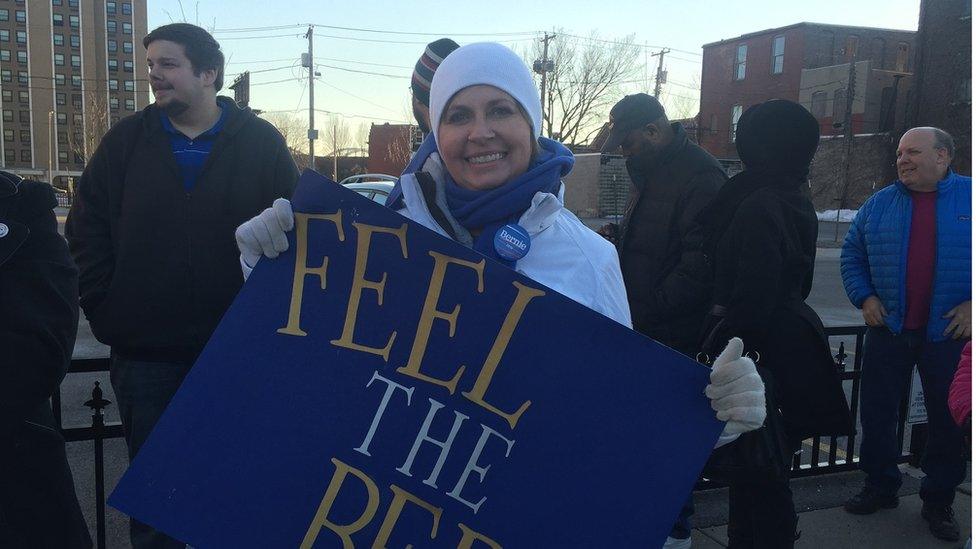
Selena Vickers
Critics, he said, insist "it's too hard, it can't be done, we have to think much, much smaller. And I say the hell with that!"
The day before, at an appearance before high school students in Des Moines, Mr Sanders' college proposal received an enthusiastic audience - more confirmation of polls that show the candidate doing much better than Mrs Clinton among younger voters.
"My parents are divorced, so it's not that easy to save up for college," said Keith McClure, a senior at Roosevelt High. "It'd just be nice to know that I would be able to go to college and not come out with a lot of debt and just be able to live comfortably."
Ms Clinton, on the other hand, preached practicality during her Davenport speech. Politics, the saying goes, is the art of the possible - and Mrs Clinton frames herself as the candidate who knows how to work within the system.
How it all started for Hillary Clinton
She said she would build on the healthcare reforms President Barack Obama has already put in place, use existing law to rein in Wall Street excesses, and make college more affordable without giving free tuition to the wealthy.
"We've got to be smart, and we've got to run an election about the real issues and what we can get done," she said. "I'd rather under-promise and over-deliver than the opposite."
The former secretary of state's speech came at the end of a long day of campaigning across Iowa, and if her pledge to "under-promise" and grind out results isn't the stuff of political revolutions, it was a theme cited again and again by her supporters.
"I like Bernie's ideas, but I really just think Hillary can take on the Republicans," Lindsey Cowherd, a dentist who brought her young daughter to Mrs Clinton's first event of the day, a rally at a college gymnasium in Des Moines. "She has the qualifications from day one to do a great job."
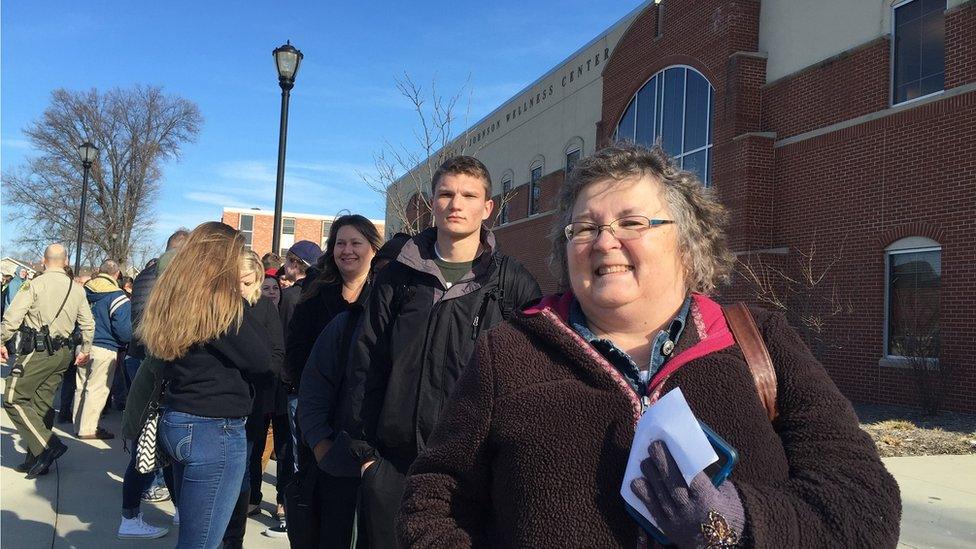
Derry O'Connor
Derry O'Connor, a retiree from Des Moines, said that she was afraid Mr Sanders wouldn't hold up against Republican attacks if he were the Democratic nominee.
"Hillary's been through those battles before," she said. "I'm just afraid they could use more scare words with Bernie than they could with Hillary."
The Establishment fights back
Republican pollster and political speech expert Frank Luntz was on hand to watch Mrs Clinton's rally in Des Moines. He said Mrs Clinton has become a more skilled candidate over the course of the campaign.
"Her message is sharper now than it was six months ago," he said. "Her delivery is clearly much better."
He added, however, that the dynamic in Iowa reminds him of 2008, when Mrs Clinton ran against the then-untested Senator Obama. In that race she finished third in Iowa, the first defeat in what would be a long, unsuccessful battle for the Democratic nomination.
What does Hillary Clinton say in her stump speech? A 60 second summary of her greatest hits
"I think Bernie Sanders wins the caucuses," Luntz said. "It's energy, passion, motivation. They want to change America, and they think they can change the world."
If Luntz has his suspicions that Mrs Clinton is in trouble - both here and in New Hampshire, which will hold its primaries a week after Iowa - that may be confirmed by increasingly sharp criticism Mr Sanders is taking, not just from Mrs Clinton and her supporters, but from other gatekeepers in the Democratic establishment.
On Saturday the New York Times, external said Mr Sanders' proposals "aren't realistic" and endorsed Mrs Clinton for the nomination, writing that she would be the "most broadly and deeply qualified presidential candidates in modern history".
On Thursday the Washington Post editorial board, external called Mr Sanders "a politician selling his own brand of fiction to a slice of the country that eagerly wants to buy it".
What does Bernie Sanders say in his stump speech? A 60 second summary of his greatest hits
"Mr Sanders's success so far does not show that the country is ready for a political revolution," the paper wrote, citing the lack of details behind his healthcare, education and tax plans. "It merely proves that many progressives like being told everything they want to hear."
Nancy Pelosi, the Democratic leader in the US House of Representatives, called the Sanders healthcare plan politically untenable.
"It's no use having a conversation about something that's not going to happen," she said, external.
In Davenport Mr Sanders appeared to acknowledge the wave of criticism that has started coming his way.
"We've got the establishment just a little bit nervous," he said. "We're not playing by their old rules."
Battleground Iowa
According to Matt Sinovic, executive director of the liberal group Progress Iowa, the Iowa contest between Mr Sanders and Mrs Clinton is too close to call just days before the caucuses.
He said Mr Sanders has the benefit of being a fresh, new face for Iowa voters, which may explain the enthusiasm of his crowds, but Mrs Clinton has broad support across the state.
He added that the race is noteworthy, however, because the arguments are over process, not policies.
"What it shows is there's an appetite on the Democratic side for a substantive debate," he said. "They're talking about regulating Wall Street, they're talking about expanding healthcare rights, they're talking about raising the minimum wage, and about creating equal pay and paid family leave - you know, really good economic policy."
"The question," he continued, "is over how you do it. Can you go incrementally, or should we just try to go all in?"

What does Bernie Sanders believe?
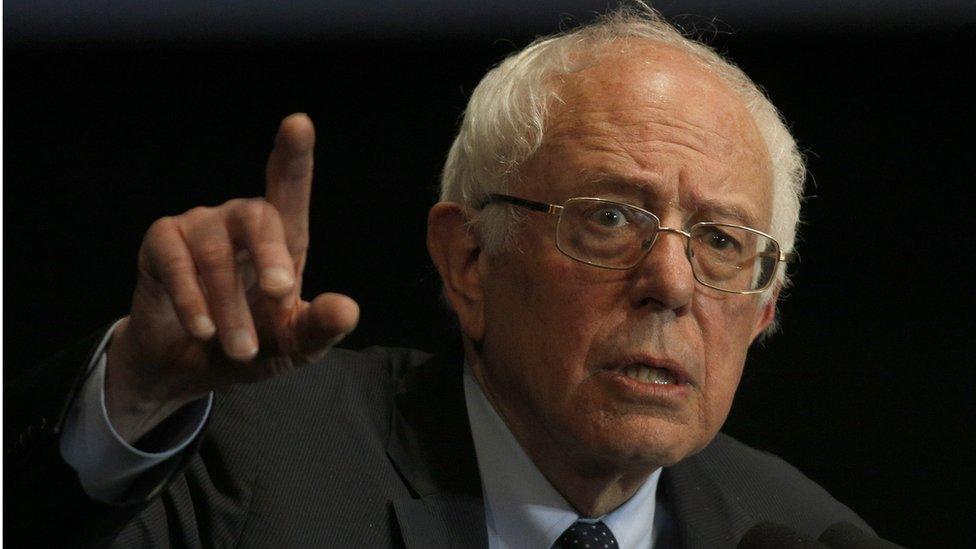
While Hillary Clinton is an established political figure, less is known about Vermont senator Bernie Sanders. Here are five things to know about him:
He is a socialist. Sanders is running as a "Democratic socialist", but in his long political career he became comfortable with just "socialist" ("I am a socialist and everyone knows it,", external he once said.)
Climate change is real. After the National Oceanic and Atmospheric Administration marked 2015 as the hottest year on record, Sanders tweeted, external: "The debate is over. Climate change is real and caused by human activity."
College should be free. "A college degree is the new high school diploma," Sanders wrote, external in a Washington Post opinion piece.
Gun ownership is a "lifestyle that should not be condemned". Sanders' record on gun control has been mixed which he says is due to the fact that his constituents in Vermont are pro-gun and "99 percent of the people in my state who hunt are law abiding people", external.
Read more here.

Mrs Clinton is hoping that after eight years of Mr Obama's presidency, where his earlier idealism often has been tempered by the reality of modern American politics, Democratic voters are willing to be practical.
Mr Sanders, on the other hand, argues that Democrats need to think much, much bigger.
It's a debate that won't be resolved when Iowans head to the caucuses on Monday. For Democrats, this is just getting started.
- Published8 November 2016
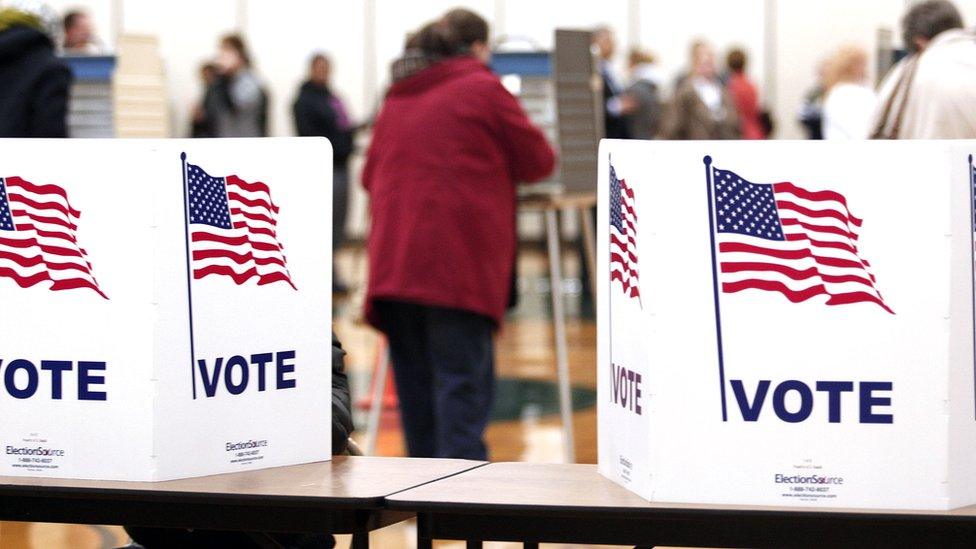
- Published28 January 2016
- Published16 March 2016
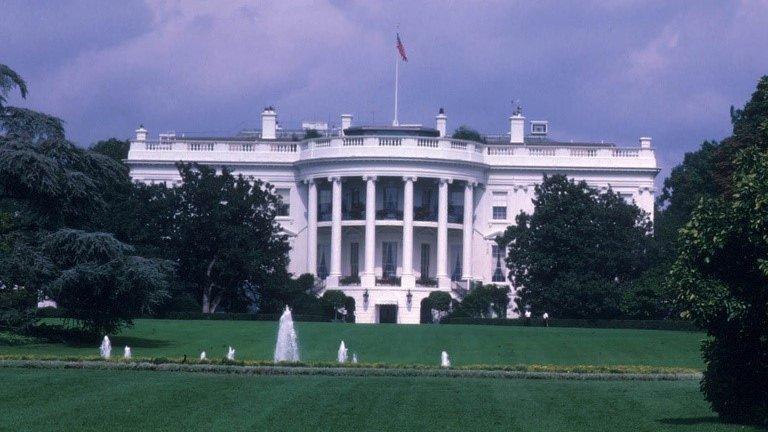
- Published15 February 2016
